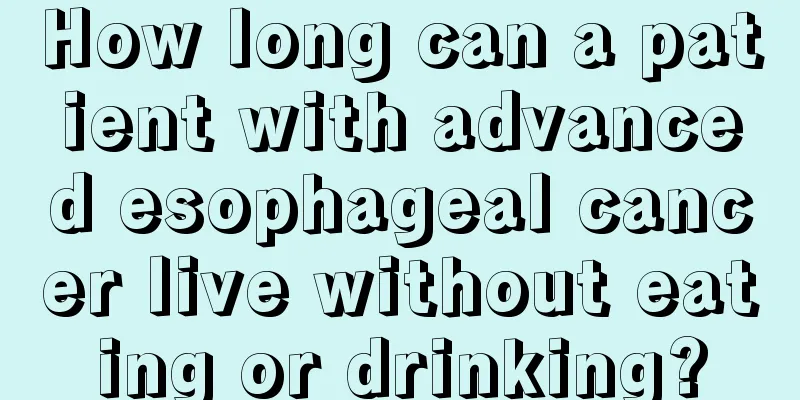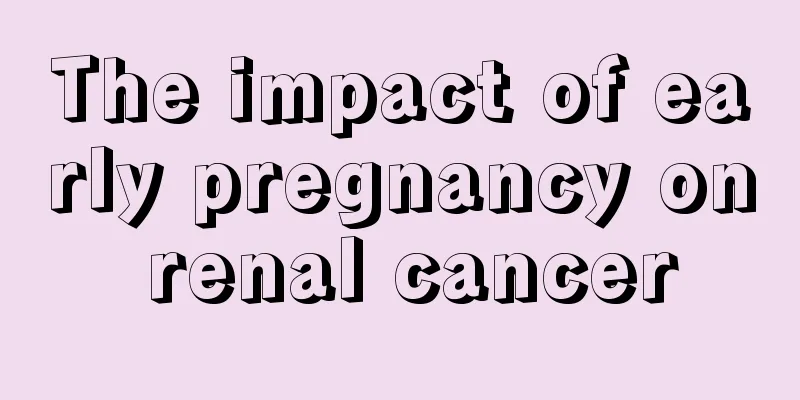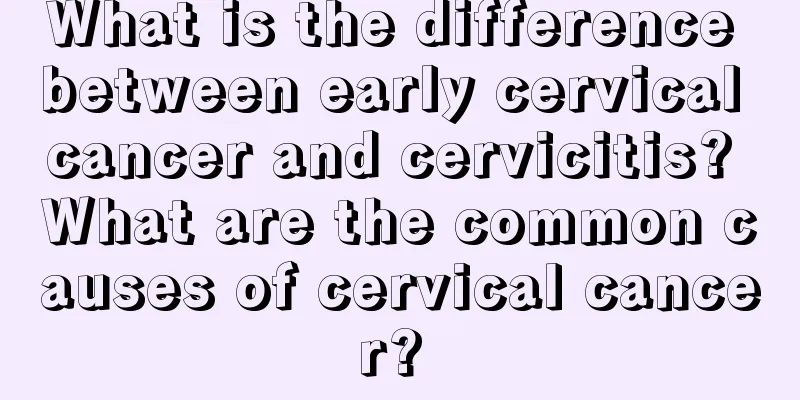How long can a patient with advanced esophageal cancer live without eating or drinking?

|
If patients with advanced esophageal cancer completely stop eating and drinking, their life may last less than two weeks, but the specific time varies depending on the individual's physical condition. It is recommended to provide palliative care under the guidance of a professional team to alleviate pain and discomfort. 1. Why not eating or drinking will shorten your life: Late-stage esophageal cancer leads to esophageal stenosis or complete obstruction, making it difficult to eat. Patients often actively reduce their food intake due to pain or fatigue. If you do not eat or drink at all, your body will quickly consume fat and muscle reserves due to lack of energy supply, electrolyte disorders and dehydration will worsen, and your internal organs will not be able to maintain normal function, and eventually multiple organ failure may occur. According to medical experience, the survival time without food is usually between 7-14 days. 2. Factors affecting survival time: Basic physical condition: If the patient has a good basic physical condition and sufficient energy reserves in the body, the survival time may be slightly longer; on the contrary, if the disease has severely consumed the body's reserves, the survival period will be significantly shortened. Complications: Advanced patients may have serious complications such as infection and heart failure, which will further shorten their survival. Treatment and care: Medical interventions, including nutritional support through a gastric tube or intravenous fluid therapy, may also have a positive impact on patient life expectancy. 3. How to alleviate the problem of nutritional intake: Provide artificial nutritional support: If the patient can still tolerate a gastric tube, medical staff can input liquid food through the gastric tube to prolong survival time and alleviate the harm of hunger to the body. Use intravenous nutrition methods: Patients who are unable to eat through the gastrointestinal tract can provide energy and necessary material support for life by infusing nutrient solutions such as total parenteral nutrition-TPN through a central vein. Relieve dysphagia: Some patients may consider placing a metal stent to temporarily expand the esophagus to help them eat small amounts of food. 4. Importance of comprehensive palliative care: The goal of advanced esophageal cancer treatment is to relieve pain and improve quality of life. Patients and their families can choose to reduce physical and psychological discomfort through pain relief drugs such as morphine, psychological intervention and nutritional care with the help of a professional palliative care team. Even in the last stage of life, there are still many medical interventions and nursing methods that can allow patients to complete their life journey as comfortably as possible. Family members are advised to communicate with doctors in a timely manner to develop a care plan that suits the patient's condition. |
<<: What can I eat after laparoscopic surgery for teratoma
>>: Difference between ampullary tumor and pancreatic cancer
Recommend
Will well-differentiated gallbladder cancer recur?
What are the treatments for recurrence of gallbla...
Gallbladder cancer treatment efficacy and cost
How much does it cost to treat gallbladder cancer...
How to take better care of dry and frizzy hair
Our hair represents the whole image of a person. ...
How to eat to prevent liver cancer? To prevent liver cancer, don't touch these 4 types of food
my country is a country with a high incidence of ...
Preventing Dangerous Osteosarcoma
The incidence of osteosarcoma has been increasing...
Is fever with lung cancer good or bad?
Is fever with lung cancer good or bad? 1. When lu...
What are the early symptoms of prostate cancer
Prostate cancer is a disease that occurs among th...
Can patients with ovarian tumors have children?
If there is a problem with the ovaries, women wil...
What vitamins promote bone growth
Generally speaking, if a person's bone lines ...
What is silicone oil and what are the hazards
Silicone oil has a wide range of uses and is used...
How long does the hepatitis A vaccine last?
The hepatitis A vaccine is injected when we are b...
What ointment is good for impetigo
Pustule sores are caused by local infection. The ...
Is pancreatic cancer treatment expensive?
Pancreatic cancer is one of the most life-threate...
I feel nauseous and want to vomit after eating greasy food
We all know that pregnant women will have pregnan...
What kind of tea can detoxify, beautify and lose weight?
Many teas have the effects of detoxification, bea...









